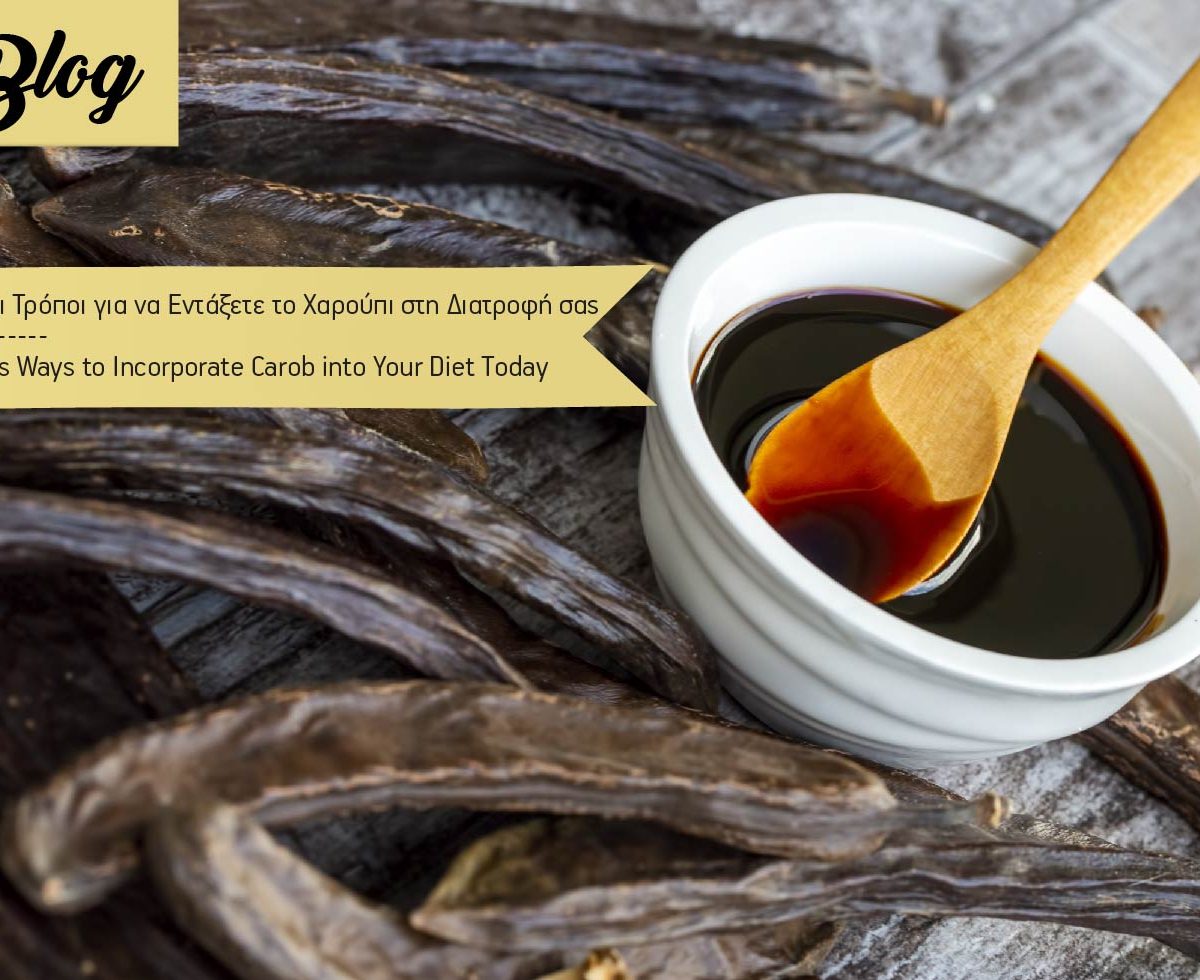
When it comes to local foods of Cyprus, there are perhaps none more iconic than the carob pod. The humble carob tree itself can be found growing all across the island, and has its roots firmly planted in Cypriot history. In fact, some of the oldest names for Cyprus – Kerasteia, Kerastia, Kerastis – all stem from the ancient name for the carob tree, which at that time was known as keratea or xylokeratia.

As for the ‘fruit’ of this prolific tree; the strangely shaped flat pods have been grown, cultivated and used in the cuisine of the island since ancient times. Used as a natural sweetener and a healthy alternative to sugar or chocolate, the pods are crushed into powder or reduced down to syrup and used to make cakes and sweets and even as an ingredient in some classic Cypriot dishes.

And carob was not only culturally important to Cyprus, but also economically important. Lauded as the island’s “black gold”, this sweet delicacy was also the main export and source of income for farmers from the Medieval era right up until the early 20th century. In fact, the village of Zygi got its name from the Greek word for the scales used by producers to weigh the carob before it was sent to the ships for export.
Is Carob a Superfood?
But historical and economic value aside, the humble yet mighty carob also has huge nutritional value. In fact, the fruit of the carob tree contains more calcium than milk, and is bursting with minerals, amino acids, phosphorus, magnesium, iron, phosphorus and natural fibres. Carob also contains protein and carbohydrates and is rich in Vitamins A, B and D, but low in fat and sodium.
So, what is the benefit of carob? Well firstly, thanks to its high calcium count, this nutritional powerhouse helps keep our bones healthy, while also supporting the healthy function of our heart, nerves, and muscles. The natural fibres help to maintain healthy bowels and aid digestion, while also lowering cholesterol. Carob fibre is also a rich source of antioxidants called polyphenols. These antioxidants help to reduce oxidative stress and fight free radicals in the body. They are also known for their anti-inflammatory, anticancer and antidiabetic properties.

How do you consume carob?
By now you’re probably wondering how to incorporate carob into your diet. Below, we’ve listed twelve of our favourite ways to use carob in the kitchen. So you can start getting the nutritional benefits of this delicious superfood yourself. Read on to learn more.
- Add a spoonful of carob powder or carob syrup to your morning smoothie for an extra nutritional boost.
- Replace coffee or hot chocolate with a healthy hot carob drink by mixing a spoonful of carob powder with boiling water or plant-based milk.
- Have a traditional breakfast of carob crackers with your favourite toppings – we love jam, cheese, tomatoes or tahini mixed with carob syrup.
- Use carob powder or carob syrup as an alternative to chocolate or sugar when baking sweets or cakes. Think healthy carob brownies, or nutritious carob power balls.
- Mix carob syrup together with olive oil, vinegar, mustard and garlic to make a sweet and tangy salad dressing.
- Improve your DIY cheese and wine night with tasty carob and sesame breadsticks adding extra flavour to your cheese platter.
- Use carob syrup together with oil, soya sauce, garlic and a pinch of salt as a flavourful marinade for meats such as chicken breast or pork chops.
- Dip deliciously crunchy carob rusks into your morning cup of coffee.
- Sprinkle carob powder onto your yogurt or ice cream.
- Experiment with adding carob syrup to your pasta sauce recipes.
- Slice up some traditional carob soutzoukos to serve to guests with coffee.
- Add a sprinkle of carob powder to your homemade bread dough or pancake batter for extra flavour.
At Prinos Farm&Deli we take pride in providing you with the best local produce from across Cyprus. Come by and check out our selection in stores in Larnaca and Nicosia or visit us online at shop.prinos.eu/.













